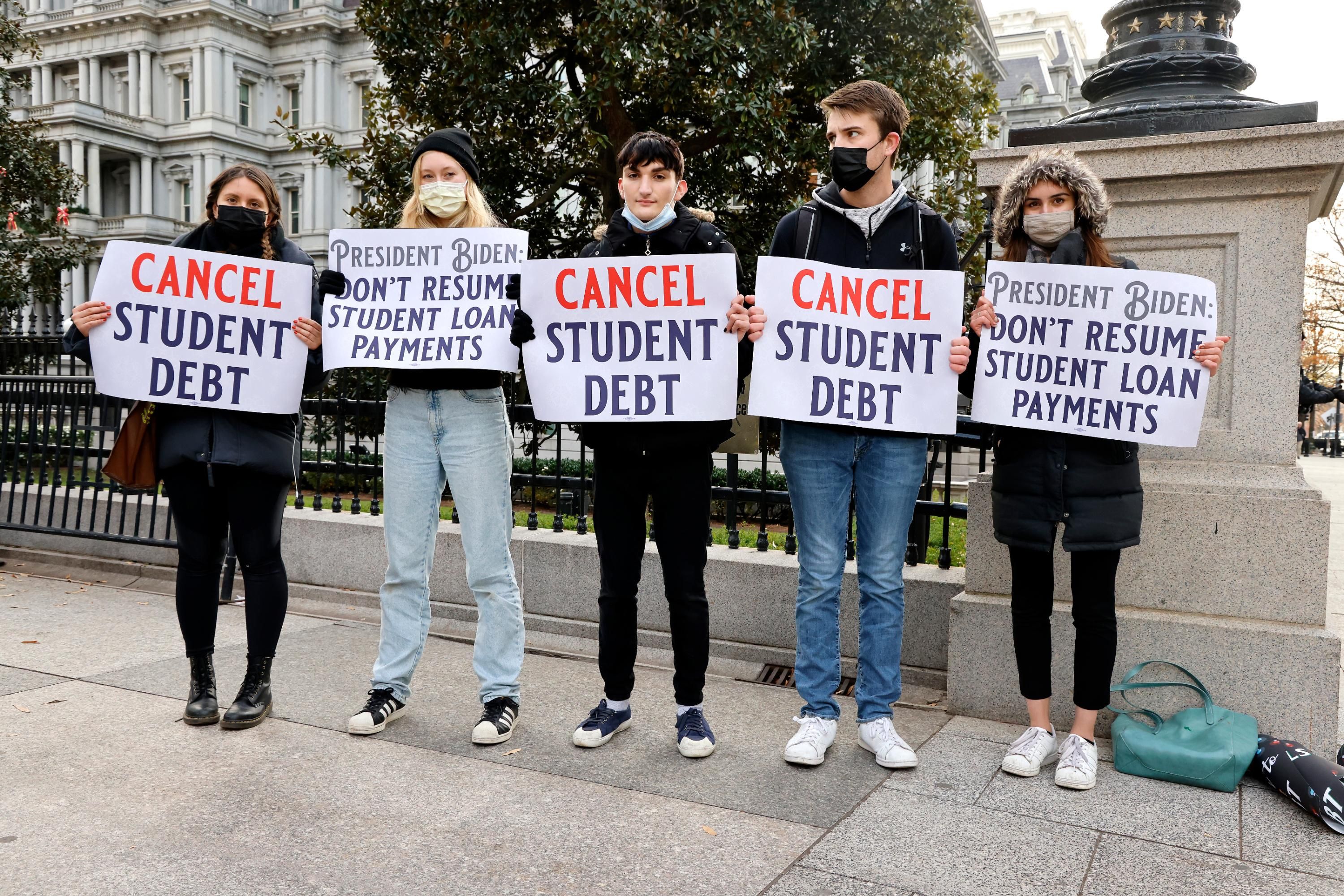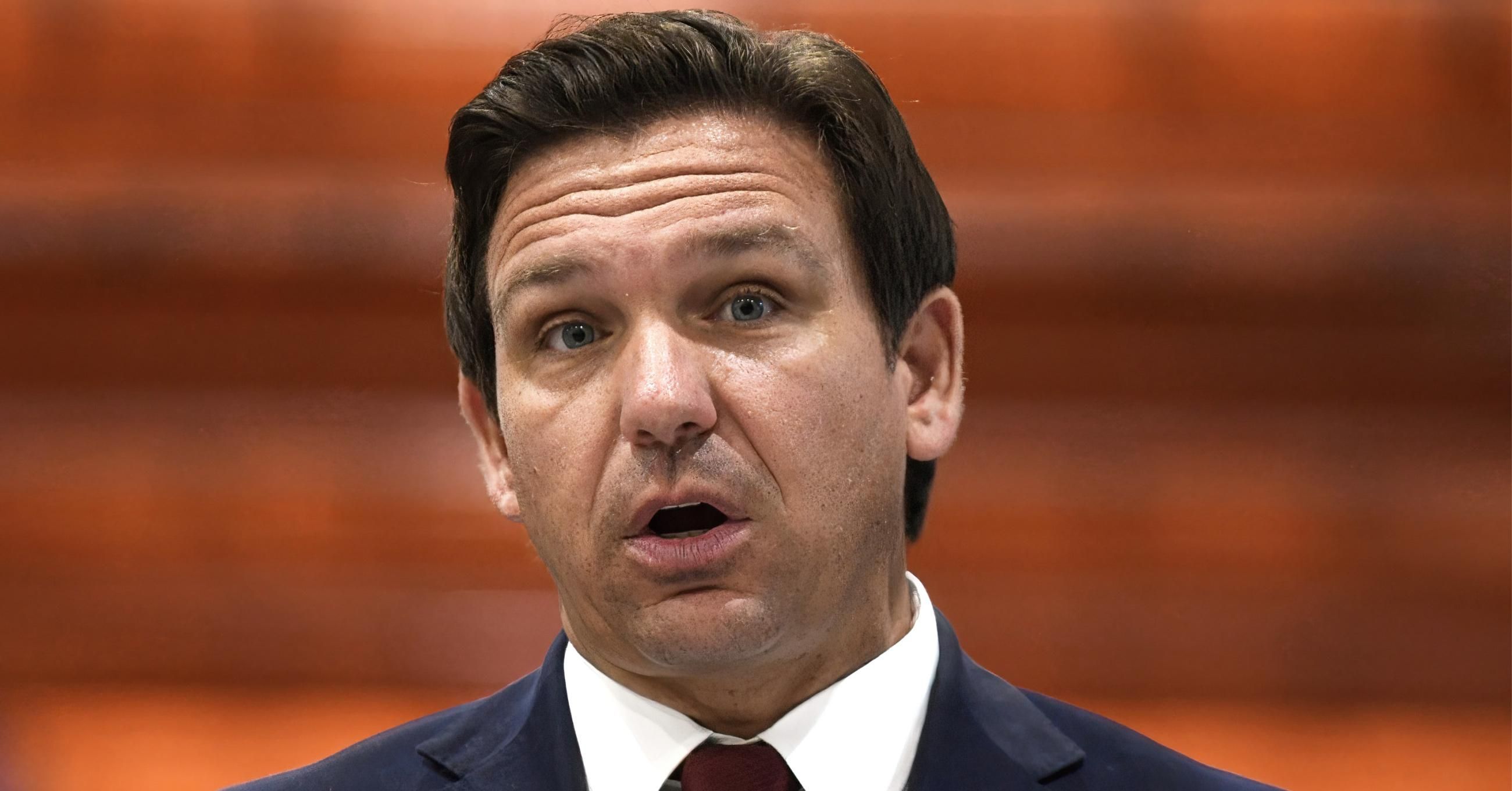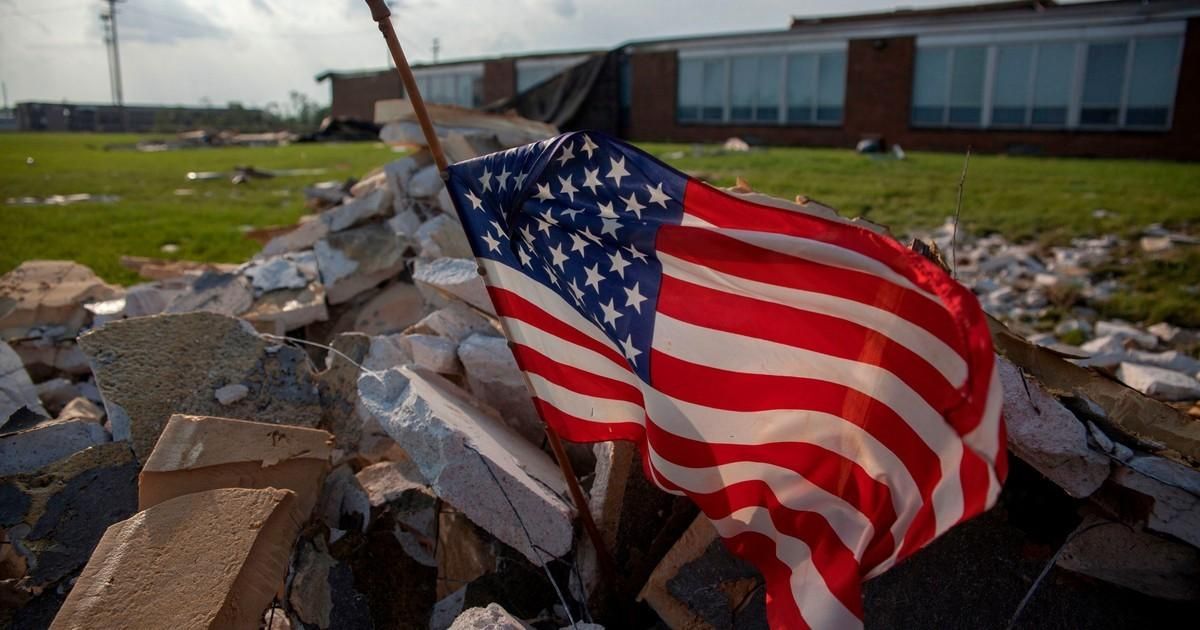No more sacrifices
We have become all too used to the notion that success only comes with sacrifice, even if this is anything but the truth for the wealthiest and most powerful Americans.
In the American ethos, sacrifice is often hailed as the chief ingredient for overcoming hardship and seizing opportunity. To be successful, we’re assured, college students must make personal sacrifices by going deep into debt for a future degree and the earnings that may come with it. Small business owners must sacrifice their paychecks so that their companies will continue to grow, while politicians must similarly sacrifice key policy promises to get something (almost anything!) done.
We have become all too used to the notion that success only comes with sacrifice, even if this is anything but the truth for the wealthiest and most powerful Americans. After all, whether you focus on the gains of Wall Street or of this country’s best-known billionaires, the ever-rising Pentagon budget, or the endless subsidies to fossil-fuel companies, sacrifice is not exactly a theme for those atop this society. As it happens, sacrifice in the name of progress is too often relegated to the lives of the poor and those with little or no power. But what if, instead of believing that most of us must eternally “rob Peter to pay Paul,” we imagine a world in which everyone was in and no one out?
In that context, consider recent policy debates on Capitol Hill as the crucial midterm elections approach. To start with, the passage of the Biden administration’s Inflation Reduction Act (IRA) promises real, historic advances when it comes to climate change, health care, and fair tax policy. It’s comprehensive in nature and far-reaching not just for climate resilience but for environmental justice, too. Still, the legislation is distinctly less than what climate experts tell us we need to keep this planet truly livable.
In addition, President Biden’s cancellation of up to $20,000 per person in student loans could wipe out the debt of nearly half of all borrowers. This unprecedented debt relief demonstrates that a policy agenda lifting from the bottom is both compassionate and will stimulate the broader economy. Still, it, too, doesn’t go far enough when it comes to those suffocating under a burden of debt that has long served as a dead weight on the aspirations of millions.
In fact, a dual response to those developments and others over the past months seems in order. As a start, a striking departure from the neoliberal dead zone in which our politics have been trapped for decades should certainly be celebrated. Rather than sit back with a sense of satisfaction, however, those advances should only be built upon.
Let’s begin by looking under the hood of the IRA. After all, that bill is being heralded as the most significant climate legislation in our history and its champions claim that, by 2030, it will have helped reduce this country’s carbon emissions by roughly 40% from their 2005 levels. Since a reduction of any kind seemed out of reach not so long ago, it represents a significant step forward.
Among other things, it ensures investments of more than $60 billion in clean energy manufacturing; an estimated $30 billion in production tax credits geared toward increasing the manufacture of solar panels, wind turbines, and more; about $30 billion for grant and loan programs to speed up the transition to clean electricity; and $27 billion for a greenhouse gas reduction fund that will allow states to provide financial assistance to low-income communities so that they, too, can benefit from rooftop solar installations and other clean energy developments.
The IRA also seeks to lower energy costs and reduce utility bills for individual Americans through tax credits that will encourage purchases of energy-efficient homes, vehicles, and appliances. Among other non-climate-change advances, it caps out-of-pocket costs for prescription drugs, reduces health insurance premiums for 13 million Americans, and provides free vaccinations for seniors.
As the nation’s biggest investment in the climate so far, it demonstrates the willingness of the Biden administration to address the climate crisis. It also highlights just how stalled this country has been on that issue for so long and how much more work there is to do. Of course, given our ever hotter planet and the role this country has played in it as the historically greatest greenhouse gas emitter of all time, anything less than legislation that will lead to net-zero carbon emissions is a far cry from what’s necessary, as this country burns, floods, and overheats in a striking fashion.
Pipelines and sacrifice zones
Earlier iterations of what became the IRA recognized a historic opportunity to enact policies connecting the defense of the planet to the defense of human life and needs. Because of the resistance of Democratic Senators Joe Manchin and Kyrsten Sinema, as well as every Senate Republican, the final version of the reconciliation bill includes worrying sacrifices. It does not, for instance, have an extension or expansion of the Child Tax Credit, a lifeline for poor and low-income families, nor does it raise the minimum wage to $15 an hour, even though that was a promise made in the 2020 election. Gone as well are plans for free pre-kindergarten and community college, in addition to the nation’s first paid family-leave program that would have provided up to $4,000 a month to cover births, deaths, and other pivotal moments in everyday life.
And don’t forget to add to what’s missing any real pain for fossil-fuel companies. After all, coal baron Manchin seems to have succeeded in cutting a side deal with Senate Majority Leader Chuck Schumer for a massive natural gas pipeline through his home state of West Virginia and that’s just to begin a list of concessions. Indeed, the sacrificial negotiations with Manchin to get the bill passed ensured significantly more domestic fossil-fuel production, including agreement that the Interior Department would auction off permits to drill for yet more oil and gas in the Gulf of Mexico, Alaska, and possibly elsewhere, all of which will offset some of the emissions reductions from climate-change-related provisions in the bill.
It’s important to note as well that, although progress was made on reducing fossil-fuel emissions, expanding health care, and creating a fairer tax system, for the poor in this country, “sacrifice zones” are hardly a thing of the past. As journalist Andrew Kaufman suggests, “One thing that does seem assured, however, is that the arrival — at last — of a federal climate law has not heralded an end to the suffering [of] communities living near heavy fossil-fuel polluters.” And as Rafael Mojica, program director for the Michigan environmental justice group Soulardarity, put it, the IRA “is riddled with concessions to the big carbon-based industries that at present prey on our communities at the expense of their health, both physically and economically.”
Keep in mind that Michigan is already anything but a stranger to sacrifice zones. Case in point: the water crisis in the city of Flint as well as in Detroit. The Flint Democracy Defense League and the Michigan Welfare Rights Organization have battled lead-poisoning and water shut-offs for years in the face of deindustrialization and the lack of a right to clean water in this country. Such grassroots efforts helped sound the alarm during the Flint water crisis that began in 2014 and have since linked community groups nationwide dealing with high levels of toxins in their water supply so that they could learn from that city’s grassroots organizing experience. Meanwhile, so many years later, Michiganders are still protesting potential polluters like Enbridge’s aging Line 5 oil pipeline.
And there are many other examples of frontline community groups protesting the ways in which their homes are being sacrificed on the altar of the fossil-fuel industry. Take, for example, the communities in the stretch of Louisiana between New Orleans and Baton Rouge that contain hundreds of petrochemical facilities and has, eerily enough, come to be known as Cancer Alley. There, among a mostly poor and Black population, you can find some of the highest cancer rates in the country. In St. James Parish alone, there are 12 petrochemical plants and nearly every household has felt the impact of cancer. For years, Rise St. James and other local groups have been working to prevent the construction of a new plastics facility near local schools on land that once was a slave burial ground.
Then, of course, there are many other sacrifice zones where the issue isn’t fossil fuels. Take the city of Aberdeen in Grays Harbor County, Washington, once home to a thriving timber and lumber economy. After its natural landscape was stripped and the local economy declined, that largely white, rural community fell into endemic poverty, homelessness, and drug abuse. Chaplains on the Harbor, one of the few community organizations with a presence in homeless encampments across the county, has now started a sustainable farm run by formerly homeless and incarcerated young people in Aberdeen as part of an attempt to create models for the building of green communities in places rejected by so many.
Or take Oak Flat, Arizona, the holiest site for the San Carlos Apache tribe. There, a group called the Apache Stronghold is leading a struggle to protect that tribe’s sacred lands against harm from Resolution Copper, a multinational mining company permitted to extract minerals on those lands thanks to a midnight rider put into the National Defense Authorization Act in 2015. Along with a growing number of First Nations people and their supporters, it has been fighting to protect that land from becoming another sacrifice zone on the altar of corporate greed.
On the east coast, consider Union Hill, Virginia, where residents of a historic Black community fought for years to block the construction of three massive compressor stations for fracked gas flowing from the Atlantic Coast Pipeline. Those facilities would have potentially subjected residents to staggering amounts of air pollution, but early in 2020 community organizers won the fight to stop construction.
Consider as well the work of Put People First PA!, which, in Pennsylvania communities like Grant Township and Erie, is on the tip of the spear in the fight against an invasive and devastating fracking industry that’s ripping up land and exposing Pennsylvanians to the sort of pollutants that leaders in Union Hill fought to prevent. Note as well that, in many similar places, hospitals are being privatized or shuttered, leaving residents without significant access to health care, even as the risk of respiratory illnesses and other industrially caused diseases grows.
Such disparate communities reflect a long-term history of suffering — from the violence inflicted on indigenous people, to the slave plantations of the South, to the expansion (and then steep decline) of industrial production in the North and West, to pipelines still snaking across the countryside. And now historic pain inflicted on low-income and poor Americans will increase thanks to a growing climate crisis, as the people of flooded and drinking-water-barren Jackson, Mississippi, discovered recently.
In a world of megadroughts, superstorms, wildfires, and horrific flooding guaranteed to wreak ever more havoc on lives and livelihoods, poor and low-income people are beginning to demand action commensurate with the crisis at hand.
Dark clouds blowing in from the “equality state”
While reports on the passage of the IRA and student debt relief dominated the news cycle, another major policy announcement at the close of the summer and far from Capitol Hill slipped far more quietly into the news. It highlights yet again the “sacrifices” that poor Americans are implicitly expected to make to strengthen the economy. Just outside of Jackson, Wyoming, one of the wealthiest and most unequal towns in this country, Federal Reserve Chair Jerome Powell committed his organization to take “forceful and rapid steps to moderate demand so that it comes into better alignment with supply and to keep inflation expectations anchored.”
Couched in typically wonkish language, his comments — made in the “equality state” — may sound benign, but he was suggesting capping wages, an act whose effects will, in the end, fall most heavily on poor and low-income people. Indeed, he warned, mildly enough, that this would mean “some pain for households and businesses” — even as he was ensuring that the livelihoods of poor and low-income people would once again be sacrificed for what passes as the greater good.
What does it mean, for instance, to “moderate demand” for food when more than 12 million families with children are already hungry each month? It should strike us as wrong to call for “some pain” for so many households facing crises like possible evictions or foreclosures, crushing debt, and a lack of access to decent health care. It should be considered inhumane to advocate for a “softer labor market” when one in three workers is already earning less than $15 an hour.
It is disingenuous to say that the economy is “overheating,” as if what’s being experienced is some strange, abstract anomaly rather than the result of decades of disinvestment in infrastructure and social programs that could have provided the basic necessities of life for everyone. Nonetheless, Powell continues to push a false narrative of scarcity and the threat of inflation to smother the powerful resurgence of courageous and creative labor organizing that we’ve seen, miraculously enough, in these pandemic years.
At this point, as a pastor and theologian, I can’t resist quoting Jesus’s choice words in the Gospel of Matthew about how poor people so often pay the price for the further enrichment of the already wealthy. In Matthew 9, Jesus asserts: “I desire mercy, not sacrifice.” The Greek word “mercy” is defined as loving kindness, taking care of the down and out. In Jesus’s parlance, mercy meant acts of mutual solidarity and societal policies that prioritized the needs of the poor, which would today translate into cancelling debts, raising wages, and investing in social programs.
Despite the encouraging policy-making that hit the headlines this summer, America remains a significant sacrifice zone with economic policies that justify their painful impact on the poor and marginalized as necessary for the greater good. It’s time for us to fight for a comprehensive, intersectional, bottom-up approach to the injustices that continually unfold around us.
Copyright 2022 Liz Theoharis















.jpg)








